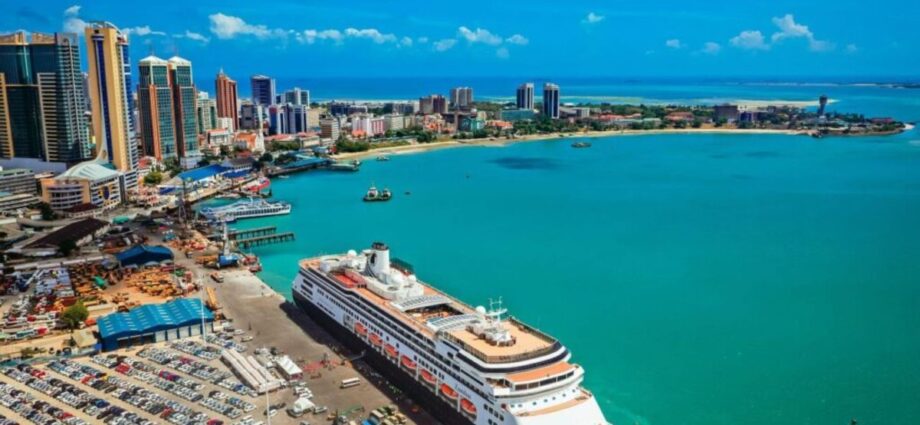Dar es Salaam. Indian multinational port operator Adani announced early in June that it had entered the African ports market in a move analysts believe will further shake up an industry attracting growing numbers of international operators.
The Indian port logistics giant said it had landed a 30-year concession deal with the Tanzania Ports Authority to operate and manage Container Terminal 2 at the Dar es Salaam Port.
“CT2, with four berths, has an annual cargo handling capacity of 1 million TEUs and managed 0.82 million TEUs of containers in 2023, estimated to be 83 percent of Tanzania’s total container volumes,” Adani explained in a press statement.
According to experts, this move could ignite a fierce competition with DP World, which already operates part of the port, potentially revamping business, improving infrastructure and boosting the port’s general efficiency.
“It is all about the competition this brings… I can tell you for sure the business elements of the port are about to change significantly because of this deal,” David Akisare, a Malawian economist, explained in an interview.
“The deal means we will have two of the biggest global port operators one from Asia and the other from the Emirates, competing for business at the port of Dar,” he explained.
The Dar es Salaam Port is a vital resource not only for Tanzania but also landlocked countries in the region including Zambia, the DRC, Burundi, Rwanda, Malawi, Uganda, and Zimbabwe.
The port is facing stiff competition from neighbouring ports and has been troubled by a limited capacity to handle higher volumes and bigger ships. Foreign operators have vowed to increase efficiencies and invest significant funds into improving operations at ports on Africa’s east and west coasts.
Dar es Salaam port’s current annual capacity is estimated at 14.1 million for dry cargo and 6 million for bulk liquid cargo. It has a limited ability to handle ships with a maximum capacity of 8,000 containers, limiting the type of vessels that call at the port, a capacity that is relatively low compared to neighbouring ports.
The addition of Adani is part of the ongoing plans to undertake infrastructural upgrades at the port, a continent-wide trend as countries strive to achieve high capacity and enable higher volume handling.
In January, Tanzania announced completion of the $420 million Dar es Salaam Maritime Gateway Project (DMGP) and said it planned to expand its maritime infrastructure as it opened storage for cargo destined for four East African Community (EAC) states.
Beyond infrastructural upgrades, Adani’s debut operations at the port are expected to have a significant impact on improving efficiency considering the competitive environment that will be created against DP World, which has had an active $250 million deal at the same port since October last year.
The Emirati maritime giant manages four city dock moorings, besides sharing another four with the Tanzania Ports Authority. In April, the port’s authority issued a press statement officially notifying partners of the start of business and logistics operations at the port.
DP World has been expanding its African ports portfolio in countries such as Angola, Djibouti and Egypt. The UAE based firm last year announced it was investing $10 billion mainly in ports in Africa.
A 2024 report by logistics firm Agility surveying logistics executives from across the world found that more than 47 percent of respondents are planning additional investments in Africa.
Besides the concession deal, Adani Ports also recently unveiled a separate joint venture with Hutchison Port Holdings Ltd. seeking to acquire a 95 percent stake at the Special Economic Zone at the same port in Tanzania.
According to Bloomberg, Adani has also partnered with AD Ports Group, an Abu Dhabi-based logistics company, and East Harbour Terminals Ltd. to acquire Tanzania International Container Terminal Services Ltd. for $39.5 million.
The deal is part of the ongoing privatisation push in Africa targeting key agencies and infrastructure such as ports and railways as countries seek to attract investors who will create greater business impact for these institutions and increase efficiency.
“The acquisition deal coupled with the concession agreement breaths hope to the port of Dar es Salaam’s future,” Akisare explained.
“It is one of the major disruptive initiatives we have witnessed in this sector in recent times and it could inspire other competing ports in the region to rally more mega investors,” he added.















